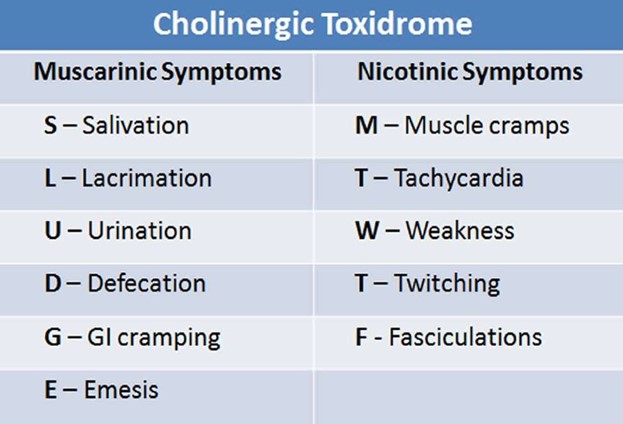A nurse is caring for a client who received neostigmine 1 hr ago and is experiencing a muscarinic response.
Which of the following manifestations should the nurse expect?
Occipital headache.
Fever.
Excessive salivation.
Myoclonic seizure.
The Correct Answer is C

Neostigmine is an anticholinesterase inhibitor that indirectly stimulates both nicotinic and muscarinic receptors by interfering with the breakdown of acetylcholine.
Stimulation of muscarinic receptors can lead to increased salivation.
Choice A is wrong because an occipital headache is not a manifestation of a muscarinic response to neostigmine.
Choice B is wrong because fever is not a manifestation of a muscarinic response to neostigmine.
Choice D is wrong because a myoclonic seizure is not a manifestation of a muscarinic response to neostigmine.
Nursing Test Bank
Naxlex Comprehensive Predictor Exams
Related Questions
Correct Answer is A
Explanation
Discard the vial of medication if the solution is cloudy.
This is because epoetin alfa should not be used if it has been frozen or if it has changed color or has particles in it.
Choice B is wrong because the vial should not be shaken before use.
Choice C is wrong because epoetin alfa should not be diluted with sterile water or any other liquid.
Choice D is wrong because epoetin alfa should not be frozen and therefore does not need to be thawed before administration.
Correct Answer is C
Explanation
The nurse should instruct the client to administer the medication through clothing if necessary.

In an emergency, an epinephrine auto-injector can be given through clothing.
Choice A is wrong because massaging the site after injection is not mentioned as something to avoid in the instructions for using an epinephrine auto-injector.
Choice B is wrong because the medication should be injected into the outer thigh, not the abdomen.
Choice D is wrong because aspiration prior to administration of the medication is not mentioned as a necessary step in the instructions for using an epinephrine auto-injector.
Whether you are a student looking to ace your exams or a practicing nurse seeking to enhance your expertise , our nursing education contents will empower you with the confidence and competence to make a difference in the lives of patients and become a respected leader in the healthcare field.
Visit Naxlex, invest in your future and unlock endless possibilities with our unparalleled nursing education contents today
Report Wrong Answer on the Current Question
Do you disagree with the answer? If yes, what is your expected answer? Explain.
Kindly be descriptive with the issue you are facing.
